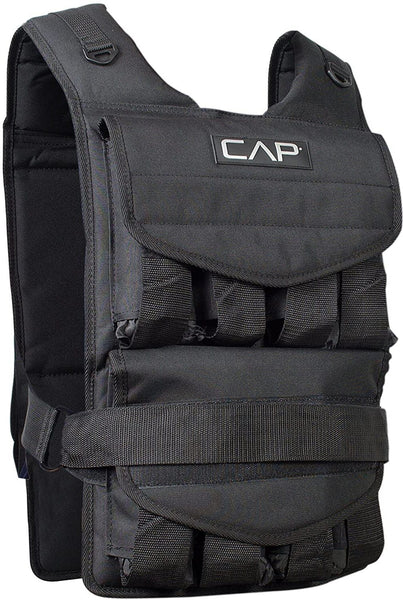Your Cart is Empty
April 09, 2024 3 min read
Eating right is one of the most important steps when it comes to achieving maximum back training benefits. A healthy diet can help you build muscle and strength, while also providing the fuel your body needs to work hard in the gym. Eating the right foods can also help you maintain a healthy weight, which can reduce the risk of injury during back exercises.
Shop The Collection: Weighted VestsIn this article, we will discuss how to eat for maximum back training benefits. We will discuss the importance of eating a balanced diet, the types of foods that are beneficial for back training, and some tips for creating a meal plan that supports back training goals.
 Shop The Gear: CAP Barbell Adjustable Weighted Vest, from $81.99 USD
Shop The Gear: CAP Barbell Adjustable Weighted Vest, from $81.99 USD
When it comes to maximizing back training benefits, eating a balanced diet is essential. A balanced diet should include foods from all the major food groups, including fruits, vegetables, whole grains, lean proteins, low-fat dairy, and healthy fats. Consuming a variety of foods from each of these food groups helps ensure that your body gets the vitamins, minerals, and other nutrients it needs to perform at its peak.
Shop The Collection: Pull Up BarsIn addition to providing your body with essential nutrients, eating a balanced diet can also help you manage your calorie intake. Consuming too few calories can lead to fatigue and decreased performance, while consuming too many calories can lead to unwanted weight gain. Eating a balanced diet can help you find the balance between the two extremes, giving you the energy and caloric control you need to reach your back training goals.
When it comes to achieving maximum back training benefits, there are certain types of foods that can help. Protein is an important nutrient for building muscle and strength, so it's important to make sure you're getting enough protein in your diet. Good sources of protein include lean meats, seafood, eggs, dairy products, nuts, and legumes.
It's also important to get plenty of complex carbohydrates in your diet. These include whole grains, starchy vegetables, beans, and legumes. Complex carbohydrates provide energy to fuel your workouts and help replenish the glycogen stores in your muscles.
Healthy fats are also important for supporting back training goals. Healthy fats include monounsaturated and polyunsaturated fats, which are found in olive oil, avocados, nuts, and fatty fish. Healthy fats help keep your body fueled, as well as helping to regulate your hormones.
Finally, it's important to make sure you're getting plenty of vitamins and minerals in your diet. Fruits and vegetables are great sources of essential vitamins and minerals, as are fortified cereals and whole grains.
Creating a meal plan that supports back training goals is not as difficult as it may seem. Here are a few tips to help you get started:
Creating a meal plan that supports back training goals doesn't have to be complicated. With a little planning and preparation, you can create a meal plan that is nutritious and provides the fuel your body needs to reach its full potential.
Eating right is one of the most important steps when it comes to achieving maximum back training benefits. A balanced diet that includes plenty of protein, complex carbohydrates, healthy fats, and vitamins and minerals is essential for optimal performance. Additionally, creating a meal plan that supports back training goals can help ensure you’re getting the nutrition you need to reach your goals.
Shipping Protection gives you peace of mind while saving you time and money.
Shipping Protection provides coverage for eligible orders that are lost or damaged in transit, or stolen after delivery has been confirmed by the carrier. MAGMA Fitness, through its partners, administers the protection program and may receive compensation for these services. Coverage is subject to the terms, conditions, and exclusions outlined in our Shipping Protection Terms & Conditions.